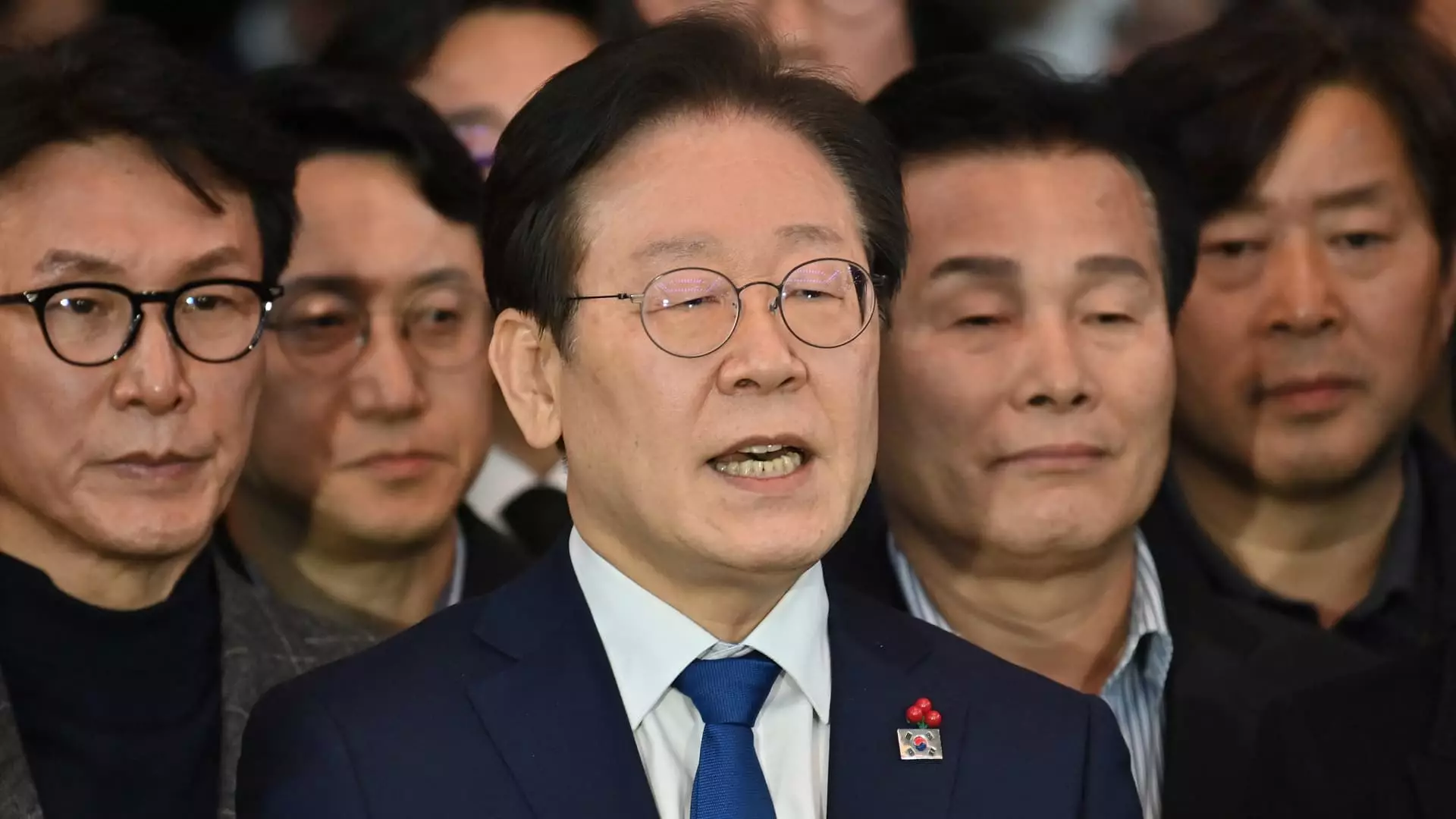As South Korea grapples with its tumultuous political landscape, the rise of presidential frontrunner Lee Jae-myung marks a pivotal moment in the nation’s history. This isn’t merely a quest for political power; it’s a clarion call for a new era of diplomacy and economic strategy. Lee’s bold stance on trade talks with the U.S. shines a spotlight on an increasingly complex relationship, one that demands not only attentiveness but a fundamental restructuring of traditional negotiation paradigms. The impeachment of Yoon Suk Yeol for his shocking declaration of martial law has unfurled a fabric of uncertainty, propelling Lee into the foreground as a steadier, more cooperative alternative.
A Call for Genuine Diplomacy
Lee Jae-myung’s recent remarks regarding U.S. tariff negotiations resonate deeply within the context of modern diplomacy. By suggesting that the current deadline for reaching a deal with Washington may be insufficient, Lee is advocating for a cooperative approach that benefits both sides—a rarity in today’s political climate. His assertion that unilateral concessions amount to “plunder” is both confrontational and revealing. It speaks to the reality of international relations, where one nation often exploits the hardships of another. Lee’s position underscores a critical understanding: true diplomacy thrives on mutual benefit, respect, and strategic partnerships rather than coercive tactics.
A Pragmatic Vision for Economic Recovery
In the backdrop of escalating trade tensions, Lee also emphasizes the urgent need for South Korea to bolster its short-term economic strategies. His commitment to creating an additional budget aimed at economic revitalization reveals an adept grasp of the interconnectedness between governance and economic performance. By vowing to lead a task force focused on addressing the domestic economic slowdown, Lee is not merely responding to the present reality; he is laying groundwork for sustainable growth. He understands that South Korea’s economic vitality correlates directly to its global relationships, making his proposed initiatives a logical extension of his diplomatic vision.
Peace and Security on the Korean Peninsula
Lee’s candid criticism of his predecessor’s hardline policies toward North Korea illustrates a nuanced understanding of regional dynamics. He argues for an approach that balances a strong defense with open avenues for dialogue and cooperation. This duality is essential for sustainable peace on the peninsula, as ideologies of isolation and aggression have historically escalated tensions rather than de-escalating them. By advocating for “dialogue, cooperation, communication, and coexistence,” Lee is steering the narrative toward pragmatism, highlighting a critical opportunity for diplomacy that could pave the way for a more constructive relationship between the two Koreas.
Facing the Challenge of Approval Ratings
Despite Lee’s significant lead in polls, fluctuations in public support serve as a reminder of the precarious nature of political contests. The rise of his conservative rival, Kim Moon-soo, who has steadily narrowed the gap, poses an immediate challenge. Lee’s assertion that South Koreans would not favor those implicated in Yoon’s insurrection underscores the lingering fears of instability that resonate with voters. Yet, it also reflects a vulnerability in Lee’s campaign—he must continually reassure the electorate that his vision, heavily focused on diplomacy and economic harmony, can overcome the shadows cast by recent political upheaval.
Lee Jae-myung is not merely a figure in a political race; he represents a beacon of change in a nation that is desperately seeking stability, mutual respect, and meaningful international partnerships. His innovative approach to diplomacy and economic recovery could very well chart a new course for South Korea, one that prioritizes collaboration over contention. In a landscape riddled with divisions and uncertainty, Lee’s philosophy could catalyze a renewed sense of hope and progress for South Korea and its allies.


Leave a Reply